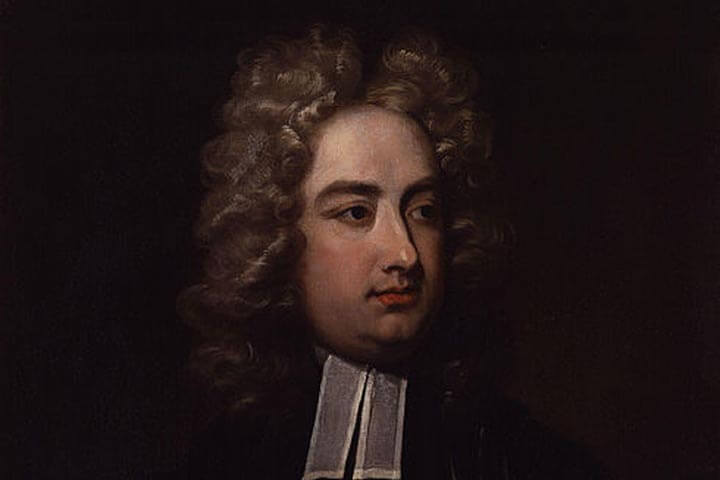Our List of Christmas Holiday Readings and Books of the Year for 2021

Voegelinview 2021 Christmas Reading List
Brought to you by the friends of and contributors to Voegelinview
Sean Hadley, Faulkner University
Washington Irving, The Sketchbook of Geoffrey Crayon. For those who have never read Irving, the five Christmas essays contained in his Sketchbookwill delight the reader and draw them back to some of the earliest Christmas traditions to take root in the American heart.
G. K. Chesterton, The Spirit of Christmas. This collection of poems, stories, and essays is oft overlooked in the Christmas readings of the year and that is a shame. Chesterton’s wit has made him famous among authors, but the Prince of Paradox has wonderful things to say about Christmas as well.
Ron Dart, University of the Fraser Valley
E.T.A. Hoffman, The Nutcracker
Hermann Hesse, “Christmas (December 2017),” from If the War Goes On
Charles Dickens, A Christmas Carol
J.R.R. Tolkien, The Father Christmas Letters
T.S. Eliot “The Cultivation of Christmas Trees” from The Ariel Poems & “Journey of the Magi”
Stephen Satkiewicz (Independent Scholar)
Hans Joas’s and Wolfgang Knöbl’s War in Social Thought: Hobbes to the Present.
A historical and theoretical examination of the role war has played within the evolution of societies, and how different philosophers and scholars have interpreted this inter-relationship. It also challenges the common presumption that modernity automatically means the reduction or elimination of war, as famously argued by Steven Pinker and others in the popular media.
Pitirim Sorokin’s The Crisis of Our Age
Although written during World War II, this book still has great relevance to our present generation. Pitirim Sorokin (1889-1968), the great Russian-American social theorist, sought to examine the catastrophe consuming the world in a long-term historical analysis of the underlining dynamics of Sensate, Ideational, and Idealistic cultures. The Sensate dynamic of modernity (governed by materialistic concerns) was becoming so chaotic and unstable that it could eventually lead to a more spiritually based Ideational or Idealistic culture.
Robert Bellah’s Religion in Human Evolution: From the Paleolithic to the Axial Age
The late Robert Bellah (1927-2013) was one of the great scholars of religion. His last major work is a brilliant tour de force looking at the origins of religion in several historical and social contexts. In certain terms, it can be described as an updated companion volume to Voegelin’s Order and History.
Anthony D. Smith’s Ethno-symbolism and Nationalism: A Cultural Approach
Last publication of the late Anthony D. Smith (1939-2016), that seeks to provide a summary of the Ethno-symbolist approach to nationalism studies that he helped formulated over the course of his career. Smith argues that nationalism and nations are forged from certain pre-modern symbols (religious, tribal, etc.) and thus runs contrary to modernism that argues that nationalism is a product of modernity (Ernest Gellner) and are built on “imagined communities” (Benedict Anderson).
David Deavel (University of St. Thomas)
The flames engulfing modern institutions are already revealing both which ones have made an ash of themselves and which have been building on silver and gold. This in turn provides us with some clues about how institutions on the bubble might survive and what any new institutions ought to look like. This is why I’ve been reading over 2021, first, a number of volumes thinking about education, especially in a Catholic context, but also the writings of what I would call some modern prophets whose voices can help us diagnose what ails our nations, culture, and the law.
The Heart of Culture: A Brief History of Western Education (Cluny), written by some of my colleagues in the Center for Catholic Studies at the University of St. Thomas (Minnesota), gives a brief (130-page) summary of what exactly was golden and silver in the tradition and what was just flammable. In A Benedictine Education (Cluny), Chris Fisher of the Portsmouth Institute reproduces John Henry Newman’s seldom-read essays on the “poetic” view embraced by the order of St. Benedict. It includes a very fine essay by Benedictine Abbot Thomas Frerking, laying out the biblical and theological foundations of that poetic view, as well as an introduction by Princeton University professor and Scala Foundation director Margarita Mooney. Mooney’s own new volume, The Love of Learning: Seven Dialogues on the Liberal Arts (Cluny), is a transcript of public conversations she had with figures such as Carlo Lancellotti, Robert George, and Elizabeth Corey. These conversations cover the attitudes, methods, and contents of true education. Finally, What We Hold in Trust: Rediscovering the Purpose of Catholic Higher Education (CUA Press), also by some of my UST colleagues (Kenneth Goodpaster, Michael J. Naughton, and the late Don J. Briel) is similarly brief but meaty, diagnosing the problem with most Catholic institutions as “teleopathy,” a disease in which secondary goals become primary, throwing the whole institution off, and offering an “examination of conscience,” by which administrators might evaluate how deeply this disease has taken hold.
My modern prophets include first and foremost Solzhenitsyn, whose second volume of Between Two Millstones (Notre Dame), chronicling his exile in the west, provides the astute reader with an example of how one is to love one’s country in disarray and work for its renewal. The late Jesuit Father Paul Mankowski, many of whose most glittering and powerful essays were collected by George Weigel in a volume titled Jesuit at Large (Ignatius), combined in his writing sparkling and incisive wit with profound depth in a way that reminds one of Waugh. Finally, Angelico Press’s translation of Valentin Tomberg’s 1944 doctoral dissertation, The Art of the Good: On the Regeneration of Fallen Justice, challenges moderns to recover the full meaning of law rooted ultimately in God’s eternal law.
Barry Cooper (University of Calgary)
Matthew B Crawford: Why We Drive: Toward a Philosophy of the Open Road Custom House, 2020
Crawford is a Chicago PhD in political philosophy and explains why self-driving cars are criminal.
Lynne Olson, Last Hope Island Random House, 2016
Olson is a “popular historian,” which means she writes about interesting things, this time how Britain looked, in 1939, to various “continentals,” and how many of them escaped to perform excellent military service against the Nazis. I went to school with a guy whose father drove Spitfires in the Battle of Britain as a member of the Polish 303 Squadron of the RAF. She provides a refreshingly non-Anglo-centric perspective.
Richard Bishirjian
Ennobling Encounters En Route Books and Media 2021
An account of personal encounters with important scholars and political leaders by Voegelin student, Richard J. Bishirjian: Henry Regnery, E. Victor Milione, Russell Kirk, William F. Buckley, Frank Meyer, F. Clifton White, Barry Goldwater, Gerhart Niemeyer, Stanley Parry, Eric Voegelin, Arthur Finkelstein, John William Corrington, Paul Weyrich, Arthur Laffer , Angelo Codevilla.
Lee Trepanier, Samford University
Wayne Cristaudo’s Idolizing the Idea: A Critical History of Modern Philosophy
Keith Thomas’ In Pursuit of Civility: Manners and Civilization in Early Modern England
Joseph M. Knippenberg, Oglethorpe University
The Princeton University Press has done us a tremendous service by publishing three very good books on liberal education. Two of them—Zena Hitz’s Lost in Thought and Jonathan Marks’s Let’s Be Reasonable—I recommended last year on this site. You can find my reviews here and here. The third—Roosevelt Montas’ Rescuing Socrates—has just been published, and I’ve promised the editors of this site a review. For the moment, I’ll only say this: Montas’ winsome reflections on his education and teaching in Columbia University’s Core Curriculum offer a compelling counterpoint to those who insist that Great Books aren’t “relatable” and relevant to this generation of students.
The remainder of my personal Christmas reading list consists of books that help prepare me for my sabbatical project in the spring, tentatively entitled “Forgetting ‘the Good, the True, and the Beautiful’: The Precarious Place of Liberal Education in the Contemporary University.” I’ll certainly continue to read and think about the identity politics that generates a lot of heat across our campuses. The best guides I have found are Joshua Mitchell’s American Awakening and John McWhorter’s Woke Racism. But what I see in many of my students is a kind of interesting pairing of identity politics and a relentless or apprehensive careerism, which threatens to crowd out anything that would turn their gaze from themselves or their future paychecks. One might say that “neoliberal education” is also a threat to liberal education. W.E.B. DuBois contended with an early version of that in his great The Souls of Black Folk, where he celebrated the spirit of inquiry and contemplation against the commercial spirit of the age. That book remains, among other things, a classic defense of liberal learning in the face of economic and social pressures to the contrary. Not quite as old as The Souls of Black Folk, the last book on my list is Robert Nisbet’s The Degradation of Academic Dogma, which seems to me prescient about the sad state of American higher education
David Walsh, Catholic University of America
My recommendation is Chen Guangcheng, The Barefoot Lawyer: A Blindman’s Fight for Justice and Freedom in China. (New York: Henry Holt, 2015). It is the story of Chen’s struggle with the lawless Chinese state as he came to assert and defend his human rights as a disabled person in China. Eventually he took on the defense of others, both the disabled and those who were caught up in the enforced abortion and sterilization under the one-child policy. The account is gripping and detailed in a way that conveys a vivid sense of the experiences he went through. It is a precious document about life in China outside of the urbanized glitter. A “barefoot lawyer” or “barefoot doctor” is someone who has not gone through formal training but, without credentials, has gained their expertise through practice. Chen’s big discovery was that there is no rule of law in China, for the party could override the proclaimed rules at any point. Yet China retains the facade of legality. This provided Chen and his collaborators with a means of bringing the officially sanctioned thuggery of the state to account, at least in some minimal fashion. Wrongdoing could be exposed. In the process he came to discover that what he was really defending was, not the rule of law, but the human beings who were most in need of its protection. The idea of human rights can be found embedded in the idea of law itself. Interwoven is the story of his own arrest, imprisonment, and escape from house arrest to make his way to the American embassy in Beijing. None of it was an easy task for a blind person. From there he was able to reach the United States in 2012. Now he is a Distinguished Fellow in our Center for Human Rights at CUA.
Daniel Mahoney, Professor emeritus, Assumption University and Senior Fellow at the Real Clear Foundation
There is no doubt we are living a new ideological age marked by tyrannizing mendacity inseparable from the effort to impose a “Second Reality” on the only human condition we know. The authoritative guide to this mixture of moral nihilism and egalitarian despotism remains Dostoevsky’s Demons, available in several decent translations, particularly those by Michael Katz and the translation team of Richard Pevear and Larissa Volokhonsky. For an indispensable aid to thinking along with Dostoevsky, I recommend A Dostoevsky Companion: Texts and Contexts, edited by Katherine Bowers, Connor Doak, and Kate Holland and published by Academic Studies Press in 2018.
The thought and writings of C.S. Lewis and Pope emeritus Benedict XVI remain vital intellectual and spiritual resources for recovering the moral foundations of a civilization open to rational discussion informed by philosophy, revelation, and noetic reason, the logos in the true and capacious sense of the term. Michael Ward’s After Humanity: A Commentary on C.S. Lewis’s The Abolition of Man brilliantly brings out the immense learning that informs Lewis’s deceptively simple defense in The Abolition of Man of human dignity against emotivism, moral relativism, and the ravages of the modern technological project. And the same publisher, the Word on Fire Institute, has also recently brought out the treasure that is The Pope Benedict Reader, edited by Bishop Robert Barron. Whether engaging the threats to human dignity in the present age, the limits of the historical-critical approach to the study of Sacred Scripture, the wisdom of the Church Fathers, or the dictatorship of relativism in late modernity, Benedict’s defense of true faith and reason illuminates and inspires. This season also welcomes fine new biographies of the pope emeritus by Peter Seewald and Joseph Pearce, respectively.
For a truly searching exploration of the “drama of humanity” in the light of both creation and evolution, see Brendan Purcell’s lucid and invigorating From Big Bang to Big Mystery which appeared from New City Press in 2012. This book brings together natural philosophy, philosophical anthropology, cosmology, paleontology, and political philosophy in a wonderfully unforced way. Truly a feast for the soul and a book for all seasons.
And for those who will buy and gift books immediately after the Christmas season, I heartily recommend Against the Tide: The Best of Roger Scruton’s Columns, Commentaries, and Criticismdue out from Bloomsbury on January 18, 2022. The book eloquently explores “intimations of infinity” even as it takes on “fraudulent philosophy” and debased ideology with vigor and insight. And the diary entries are at once luminous and affecting. A book for all who love wisdom and are alarmed by the unrelenting culture of repudiation that threatens our civilized inheritance.
John von Heyking, University of Lethbridge
Laura Snyder, Philosophical Breakfast Club. A fascinating account of the group of friends who invented the term (and sociological category) “scientist.”
Gary Ginsberg, First Friends: The Powerful Unsung (and Unelected) People Who Shaped Our Presidents. Learn about the powerful consiglieri who served as counsellors, companions, and even friends to several US presidents. Find out that even Richard Nixon had a friend!
David Walsh, Priority of Person: Political, Philosophical, and Historical Discoveries. Walsh’s second book on the person is a collection of essays. Each essay can stand for the whole, just as a person does.
Neville Thompson, The Third Man: Churchill, Roosevelt, Mackenzie King, and the Untold Friendships That Won WWII. Churchill and Roosevelt were friends, but their friendship was facilitated by intermediaries including Harry Hopkins and Canadian Prime Minister Mackenzie King, who is featured here. One of the blurbs rightfully mentions that this book could have been called When Canada Mattered.



